Two identical plano-convex lenses and
of radii of curvature are placed as shown in Figure.
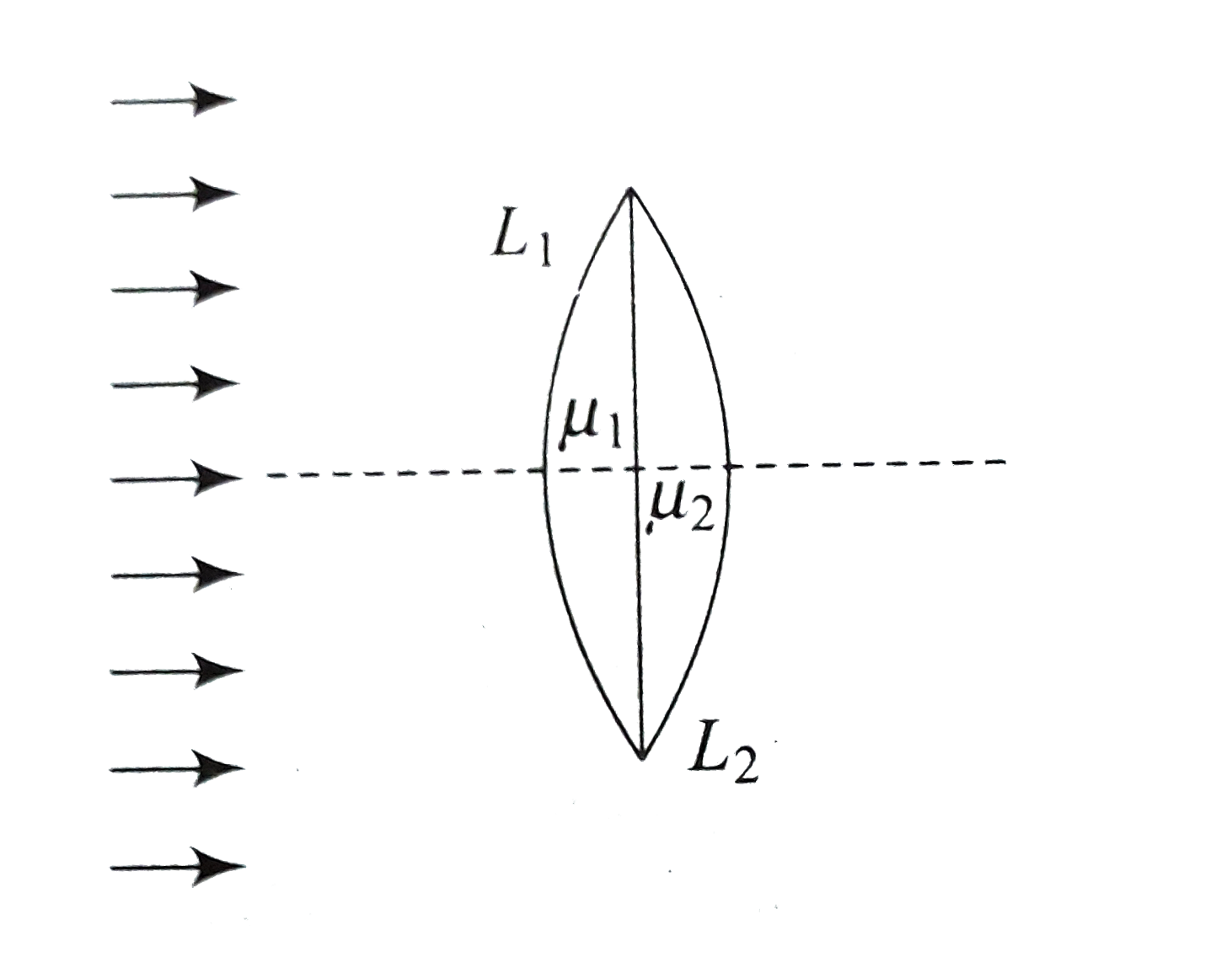
Q. Find the position of the image of the parallel beam of light relative to the common principal axis.
The correct Answer is:b.
a. Focal lengths of lenses and are, respectively, given by
The equivalent focal length f of the combination is given by
Hence, the image of the parallel beam is formed on the common principal axis at a distance of 22.22cm from the combination on the right side.
b. Image formed by is at a distance of 50cm behind the lens. This image lies on the principal axis of and will act as an object for
For , object distance,
Magnification caused by
For object is at a distance of 4.5mm above its principal axis.
Hence, distance of image of the object (virtual) is at a distance above the principal axis of
=mxx
Hence, final image is at a distance of 22.22cm behind the combination at a distance of 2.5mm below the principal axis of .
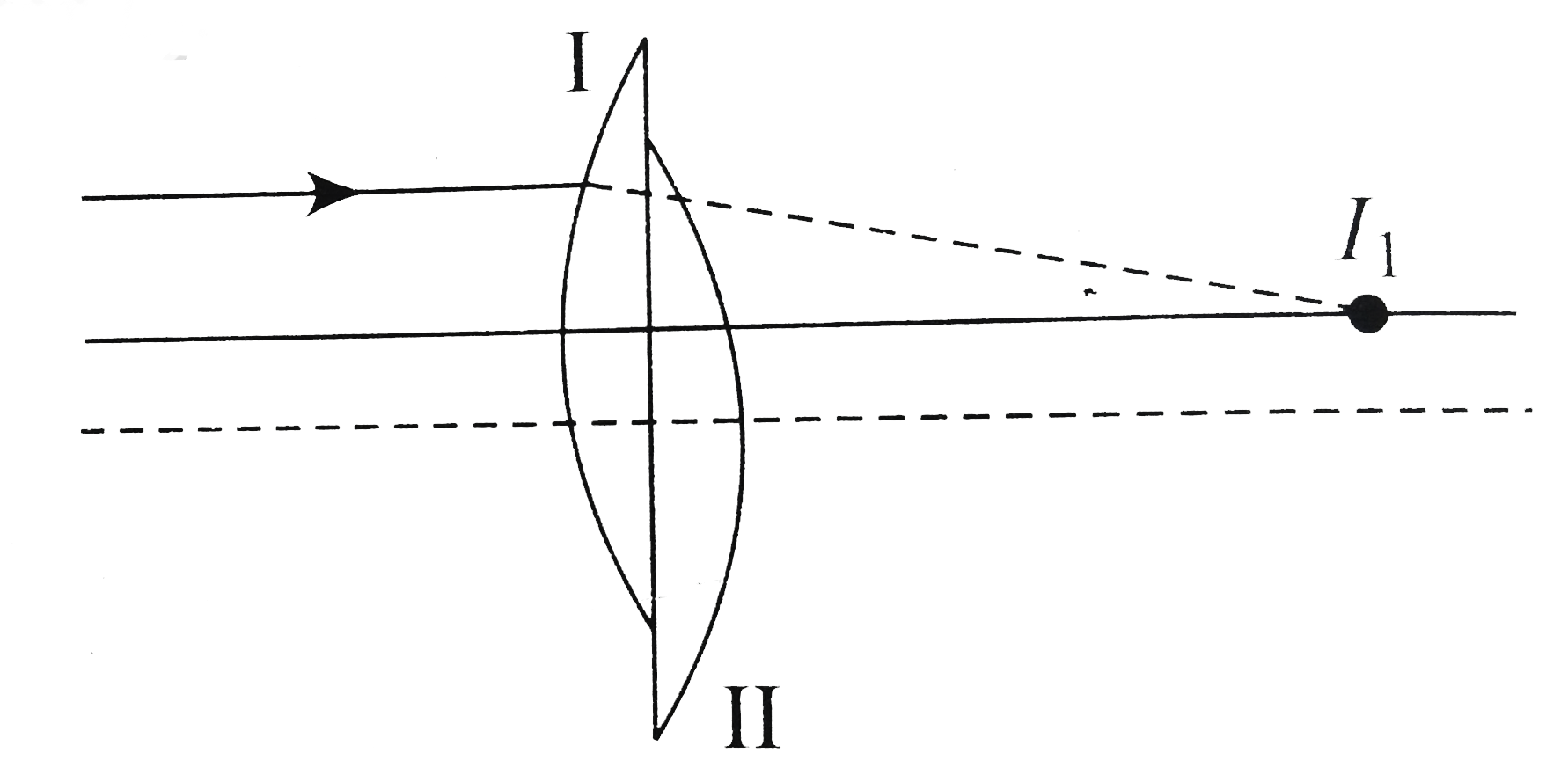
Topper's Solved these Questions
- GEOMETRICAL OPTICSBOOK - CENGAGE PHYSICSCHAPTER - GEOMETRICAL OPTICSEXERCISE - Integer
15 Videos
- GEOMETRICAL OPTICSBOOK - CENGAGE PHYSICSCHAPTER - GEOMETRICAL OPTICSEXERCISE - Archives
7 Videos
- GEOMETRICAL OPTICSBOOK - CENGAGE PHYSICSCHAPTER - GEOMETRICAL OPTICSEXERCISE - Assertion-Reasoninig
2 Videos
- FRICTIONBOOK - CENGAGE PHYSICSCHAPTER - FRICTIONEXERCISE - QUESTION BANK
1 Videos
- GRAVITATIONBOOK - CENGAGE PHYSICSCHAPTER - GRAVITATIONEXERCISE - Question Bank
39 Videos
Similar Questions
Two identical plano-convex lenses L1(μ1−1.4) and L2(μ2−1.5) of radii of curvature R=20cm are placed as shown in Figure.
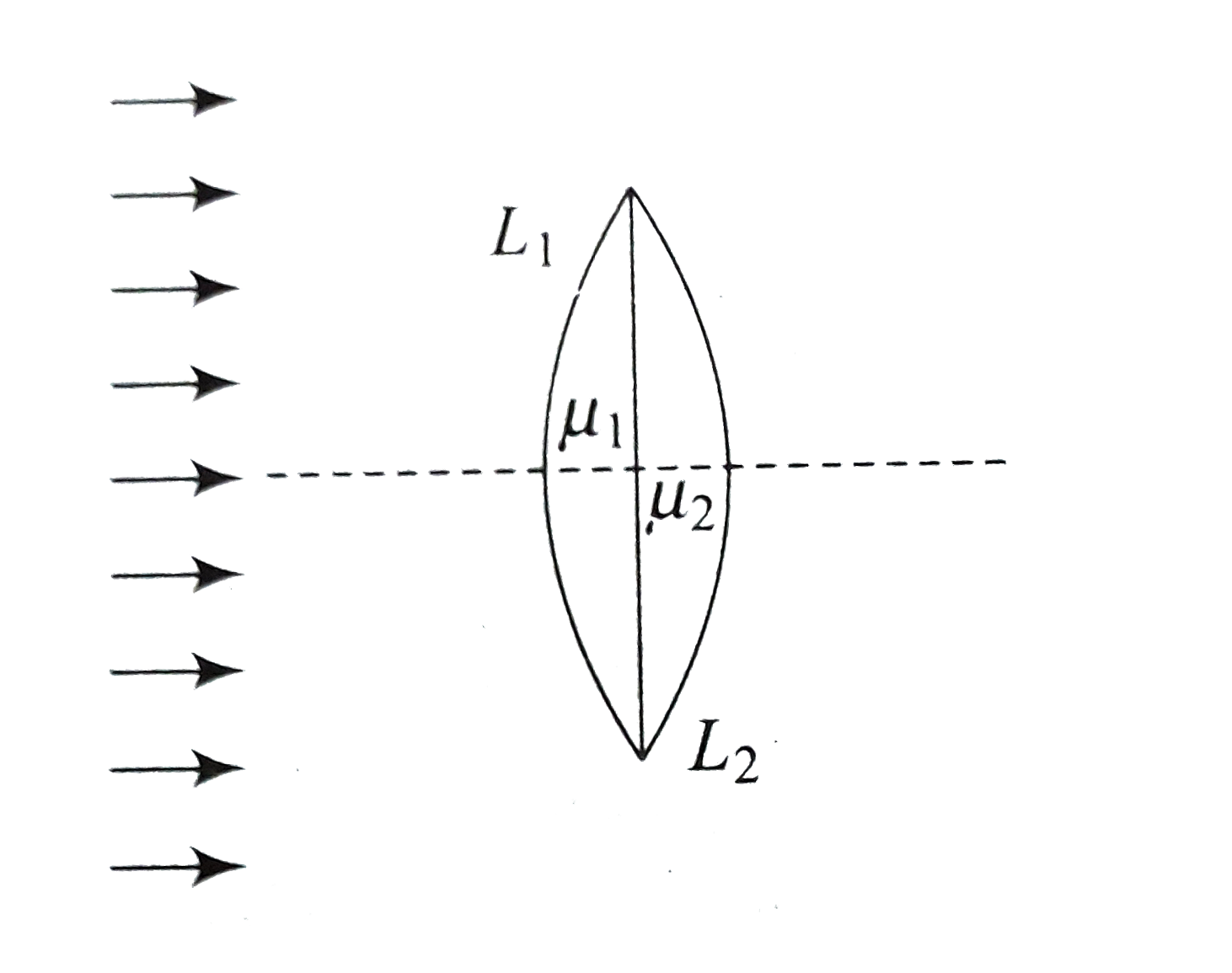
Q. Now, the secocnd lens is shifted vertically downward by a small distance 4.5mm and the extended parts of L1 and L2 are blackened as shown in figure. Find the new position of the image of the parallel beam.
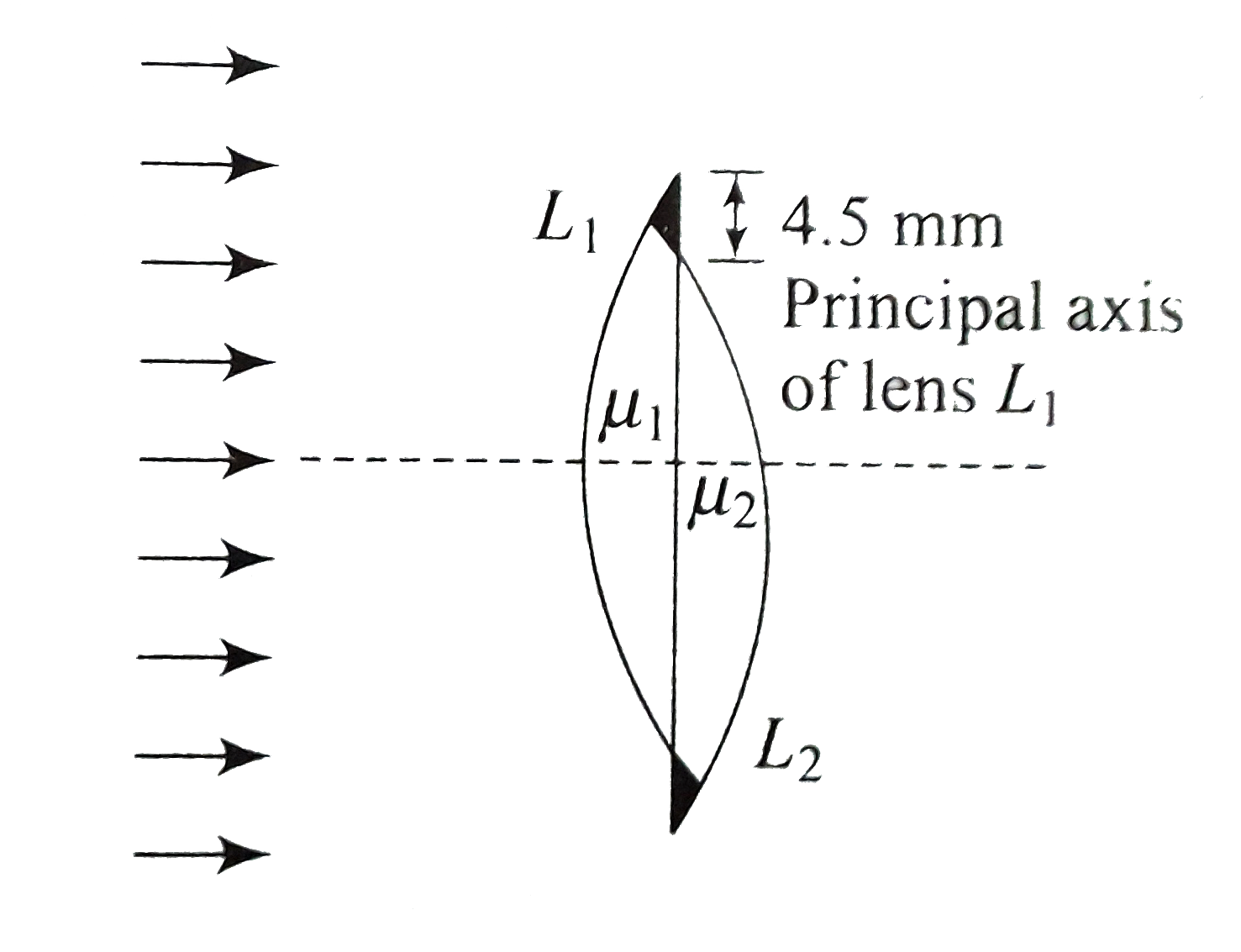
View SolutionA spherical convex surface of radıus of curvature 20 cm, made of glass (μ=1.5) is placed in air Find the posıtion of the image formed, if a point object is placed at 30 cm in front of the convex surface on the principal axis.
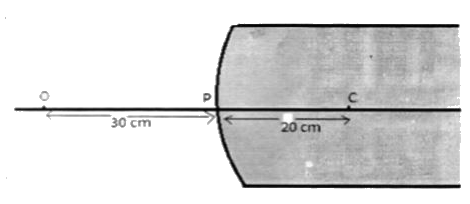
View Solution
Knowledge Check
Two identical plano-convex lenses L1(μ1−1.4) and L2(μ2−1.5) of radii of curvature R=20cm are placed as shown in Figure.

Q. Now, the secocnd lens is shifted vertically downward by a small distance 4.5mm and the extended parts of L1 and L2 are blackened as shown in figure. Find the new position of the image of the parallel beam.
 A200/9 cm behind the lens 2.5 mm below the principal axis of L1B100/9cm in front of th elens 2mm below the prinicipal axis of L1C200/9cm in front of the lens 2.5mm below the principal axis of L1D100/9cm behind the lens 2mm below the princiipal axis of L1
A200/9 cm behind the lens 2.5 mm below the principal axis of L1B100/9cm in front of th elens 2mm below the prinicipal axis of L1C200/9cm in front of the lens 2.5mm below the principal axis of L1D100/9cm behind the lens 2mm below the princiipal axis of L1
A convex surface of radiys of curvature 20 cm separates air from glass of refractive index 1.5. Find the position and the nature of the image of a small object placed at 50 cm in front of the convex surface.
View SolutionCurved surfaces of a plano-convex lens of refractive index μ1 and a plano-concave lens of refractive index μ2 have equal radius of curvature as shown in figure. Find the ratio of radius of curvature to the focal length of the combined lenses.

View SolutionA plano-convex glass lens (μg=3/2) of radius of curvatureR=10cm is placed at a distance of b from a concave lens of focal length 20cm. What should be the distance a of point object O from the plano-convex lens so that position of final image is independent of b?
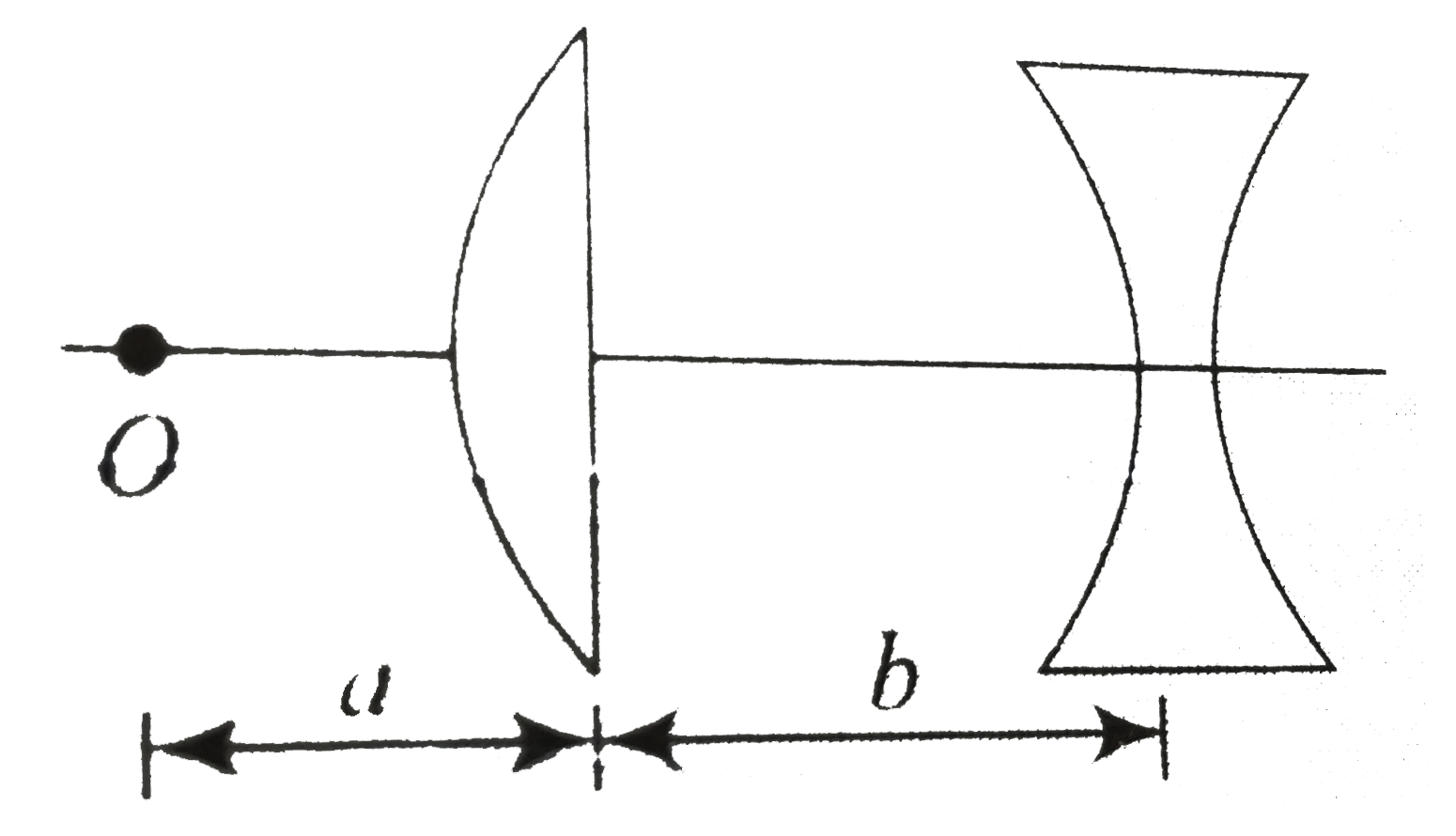
View SolutionA plano-convex glass lens (μg=3/2) of radius of curvatureR=10cm is placed at a distance of b from a concave lens of focal length 20cm. What should be the distance a of point object O from the plano-convex lens so that position of final image is independent of b?

View SolutionAn object of height 1mm is placed inside a sphere of refractive index μ=2 and radius of curvature 20 cm as shown in the figure. Find the position, size, and nature of image, for the situation shown in Figure. Draw ray diagram.
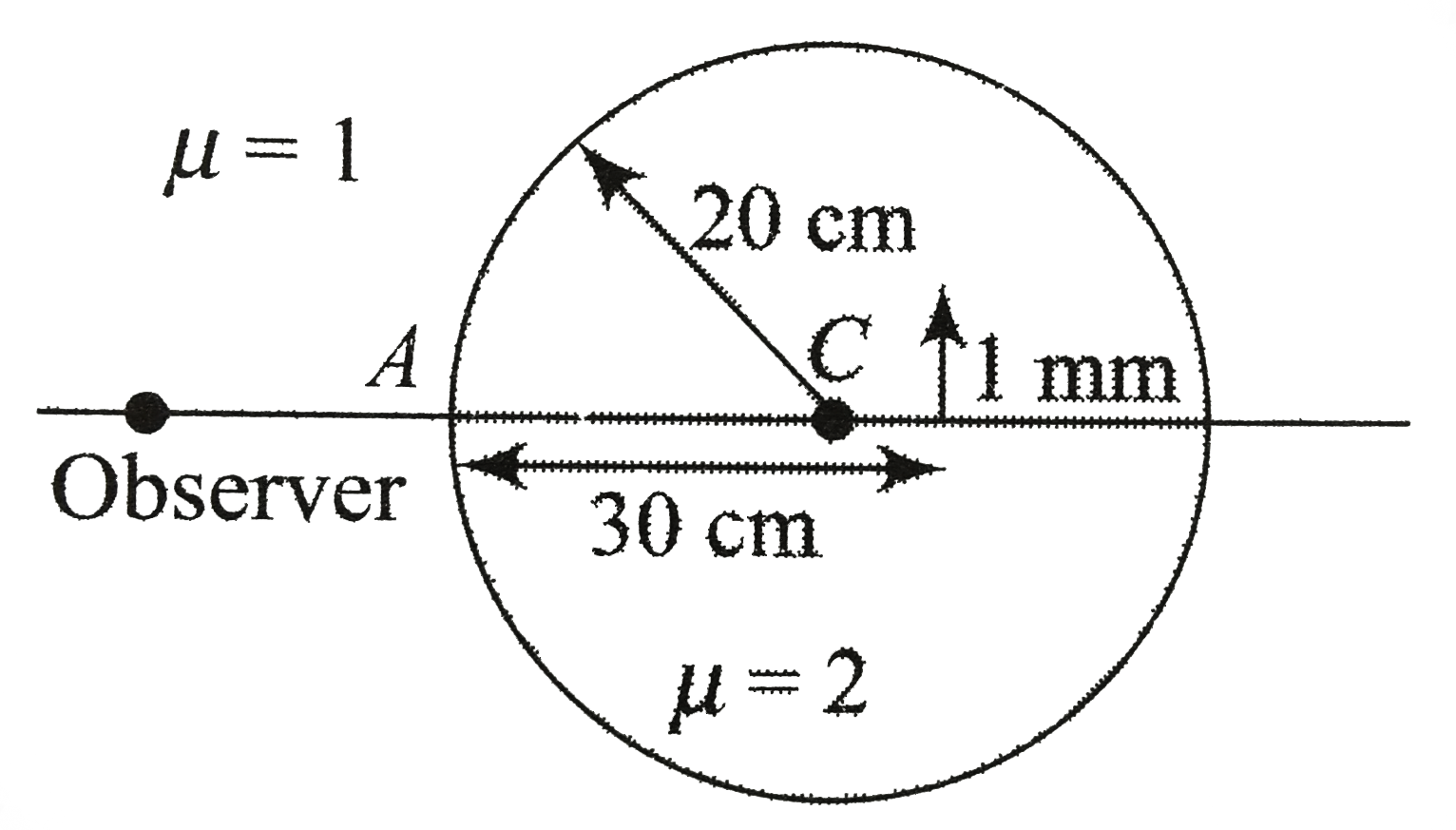
View SolutionAn object of height 1mm is placed inside a sphere of refractive index μ=2 and radius of curvature 20 cm as shown in the figure. Find the position, size, and nature of image, for the situation shown in Figure. Draw ray diagram.

View SolutionA cylindrical tube filled with water (μw=43) is closed at its both ends by two thin, silvered plano - convex lenses, as shown in the figure. Refractive index of lenses L1andL2 and 2.0 and 1.5, while their radii of curvatures are 5 cm and 9 cm, respectively. A point O on the axis of the cylindrical tube. If it is found that all the images formed by multiple refractions and reflections coincide with the object, then the distance between both the lenses is
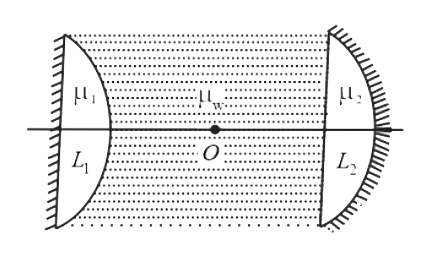
View Solution
